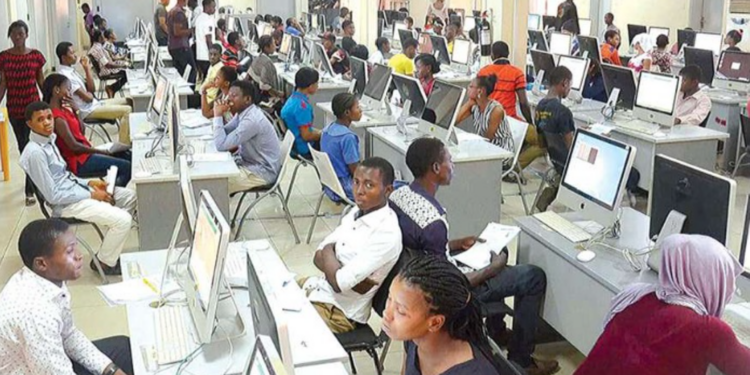The Registrar of the Joint Admissions and Matriculation Board (JAMB) has announced that parents will no longer have the authority to select courses for their children with disabilities when they are applying for admission to tertiary institutions.
This decision was made in response to comments from Stanley Onyebuchi, the National President of the National Association of Visually Impaired, during the First Conference of JAMB Equal Opportunity Group (JEOG) in Abuja.
The conference focused on increasing equal access to higher education in Nigeria and also featured the unveiling of the Strategic Roadmap for Inclusive Access to Quality Higher Education in Nigeria 2024-2028.
What he said
The representative from JAMB said,
- “There is the case of the student who wanted to study law, but her stepfather said he would allow her to go as far as Calabar to study law, so asked that she be enrolled in Kaduna State University.
- “This is because the course she showed interest in was not available at the university but the father asked that she study special education.
- “We have now decided that henceforth, just like with regular admissions, no parent will be allowed to have a say in the admission choice of candidates with disabilities”.
In his opening remarks, Oloyede emphasized that the Joint Admissions and Matriculation Board (JAMB) is committed not only to facilitating access to education but also to ensuring equity.
Special arrangements have therefore been put in place to promote the inclusion of Persons with Disabilities (PWDs) in tertiary education.
Promoting inclusivity and equal opportunity
Stanley Onyebuchi, the National President of the National Association of Visually Impaired, highlighted the challenges faced by some of their members when seeking admission to tertiary institutions, particularly in their choice of courses.
He expressed concern that some institutions reject PWDs, stating that they were not suitable for their programs. Onyebuchi also mentioned the economic hardships faced by their members due to the removal of fuel subsidies, which has led to many of them discontinuing their education.
- “I want the National Universities Commission (NUC) and the Vice Chancellors of Nigerian Universities to take note of our complaints.
- ” If it means a sensitization visit, we don’t mind going around because for us, the visually impaired persons, education is key to our success, anything that will hinder us from achieving this we will not take it.
- “Also with the increment in the tuition fees, that has discouraged our members from going back to school. I want to suggest since the government want our children to be out of the streets, there should be free education for all persons with disabilities in all the tertiary institutions,” he said.
He emphasized the importance of creating a conducive working environment for PWDs, noting that they often lack essential assistive devices that would enable them to work effectively.
The Minister of Education, Prof. Tahir Mamman, officially inaugurated the conference and expressed the federal government’s commitment to ensuring that every member of society has equal access to education.
He stressed that achieving equal opportunity in higher education should start with inclusivity. Mamman also called on tertiary institutions and their communities to prioritize inclusive access for Persons with Disabilities (PWDs).
- “We must work by focusing on an accessible learning environment where a physically appropriate environment is needed and inclusive curriculum for all students.
- “Support services should be readily available in the institutions, and faculty and staff training who will be sensitive to the need for diversity must be put into consideration.
- “All information from application processes in the format that will suit the PWDs must also be ensured,” he said.
The Ministry of Education reaffirmed its commitment to fulfilling the new administration’s mandates by concentrating on policies that promote inclusivity and unity.
Likewise, Dr. Bashiru Daudu, Chairman of the House of Representatives Committee on Disability, announced that the House would soon launch an awareness campaign about the Disability Act of 2018.
Daudu mentioned that the committee would initiate the implementation of the act in January 2024 to address the needs of Persons with Disabilities (PWDs) in the country.
Sen. Ahmad Kaita, Chairman of the Senate Committee on Tertiary Institutions and TETFund, also pledged to explore innovative funding methods to ensure that all Nigerians have equal opportunities for higher education.












